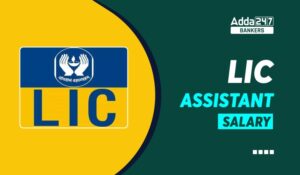Reasoning is a game of wits and presence of mind! Yes, it is true and it might seem as the greatest of the challenge after English Section’s surprises but yet this one can easily be dealt with. You just need correct practice and hardwire your brain to quickly make decisions of what to attempt and what to leave. And for same we are providing you questions on Night Class Reasoning Question. To Practice more with these new pattern Reasoning Question for RRB PO Exam 2017.
Directions (1-5): In each of the following questions two statements are given and these statements are followed by two conclusions numbered (1) and (2). You have to take the given two statements to be true even if they seem to be at variance from commonly known facts. Read the conclusions and then decide which of the given conclusions logically follows from the two given statements, disregarding commonly known facts. Give answer:
(a) If only (a) conclusion follows
(b) If only (b) conclusion follows
(c) If either (a) or (b) follows
(d) If neither (a) nor (b) follows and
(e) If both (a) and (b) follow
Q1. Statements: All TV are LCD. Some LCD are LED.
Conclusions: I.Some LED are TV.
II.All TV being LED is a possibility.
Q2. Statements: Some doors are window. No window is a house.
Conclusion: I. All house being door is a possibility.
II. At least some house is a window.
Q3. Statements: Some red are blue. Some green are red.
Conclusions: I. Some green are blue.
II. All green being blue is a possibility
Q4. Statements: All bronze are gold. Some silver are gold.
Conclusions: I. Some bronze are silver.
II. No bronze is a silver.
Q5. Statements: Some men are women. No women is child.
Conclusions: I.Some men being child is a possibility
II. Some child are women
Directions (6-10): Study the following information and answer the question given.
Ten people are sitting in two parallel rows containing five people each, in such a way that there is an equal distance between adjacent persons. In row 1: P, Q, R, S and T are seated and all of them are facing south. In row 2: A, B, C, D and E are seated and all of them are facing north. Therefore, in the given sitting arrangement each member seated in a row faces another member of the other row. D sits third to the left of A. P faces the immediate neighbour of D. R sits second to the right of P. Only one person sits between Q and S. B and E are immediate neighbours of each other. E does not face P and Q.
Q6. How many persons are seated between Q and T?
(a) none
(b) one
(c) two
(d) three
(e) cannot be determined
Q7. Who among the following represents the people sitting exactly in the middle of the rows?
(a) P, E
(b) S, D
(c) S, A
(d) A, R
(e) P, B
Q8. Which of the following is true regarding B?
(a) A and C are immediate neighbours of B
(b) B sits at one of the extreme ends of the line.
(c) Q faces B
(d) T is an immediate neighbour of the person facing B.
(e) D sits to the immediate left of B.
Q9. Four of the following five are alike in a certain way and thus form a group. Which is the one that does not belong to that group?
(a) T – E
(b) Q – C
(c) S – B
(d) R – A
(e) P – D
Q10. Who among the following face S?
(a) A
(b) B
(c) C
(d) D
(e) E
Directions (Q.11-15): Read the following information carefully and answer the questions given below.
Six lectures P, Q, R, S, T and Z are to be delivered from Monday to Sunday. One lecture will be delivered each day.
(i) Lecture R cannot be delivered on Friday.
(ii) Lecture P is delivered immediately after lecture S.
(iii) There should be a gap of two days between the lectures Q and Z.
(iv) There is one holiday except on Saturday. Lecture Z is delivered on the next day of holiday.
(v) Lecture T is delivered on Wednesday and it is not immediately followed or preceded by lecture Z.
Q11. Lecture S will be delivered on which of the following days?
(a) Friday
(b) Saturday
(c) Sunday
(d) Thursday
(e) None of these
Q12. Which day is a holiday?
(a) Sunday
(b) Friday
(c) Monday
(d) Cannot be determined
(e) None of these
Q13. How many lectures will be delivered between Z and S?
(a) None
(b) One
(c) Two
(d) Three
(e) None of these
Q14. Which of the following will be the last lecture?
(a) P
(b) R
(c) Q
(d) Can’t be determined
(e) None of these
Q15. Which of the following statements is not necessary to determine the order of lectures?
(a) I
(b) II
(c) V
(d) I and II
(e) None of these
You may also like to Read:
- More questions on Reasoning for Bank exams
- Reasoning ability study notes and tips
- Know all about IBPS RRB 2017 – Dates, Syllabus, Pattern & More!





 GA Capsule for SBI Clerk Mains 2025, Dow...
GA Capsule for SBI Clerk Mains 2025, Dow...
 The Hindu Review October 2022: Download ...
The Hindu Review October 2022: Download ...
 LIC Assistant Salary 2025, Revised Basic...
LIC Assistant Salary 2025, Revised Basic...





